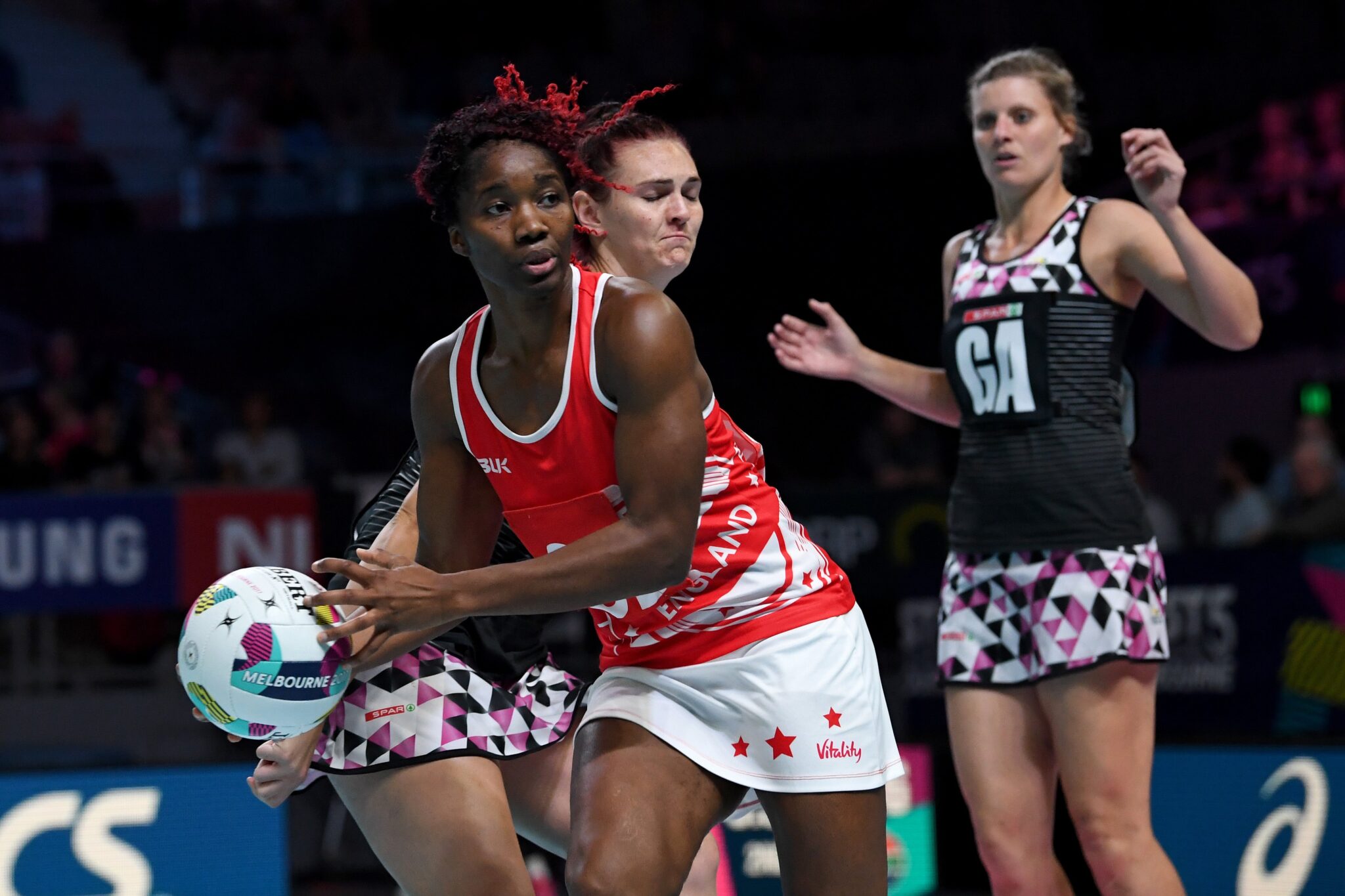"There wasn't parity before and we knew that, but we were working towards it and governing bodies were stepping forwards and trying to better their female influence and participation and elite level," she said.
I just think it will have set us back maybe about 10 or 20 years. I know that some sports will have more finances that they might be able to use to help support the female game but I know a lot of female sports do struggle commercially and financially."

Ama Agbeze: Coronavirus 'could set women's sport back decades' - former England netball captain
Former England netball captain Ama Agbeze fears the coronavirus pandemic could set women’s sport back decades because of the cancellation of leagues and competitions.
But other leading figures, including UK Sport chief executive Sally Munday, are hopeful the disruption will be a short-term “blip”.
Sports minister Nigel Huddleston has sought reassurances from major sports bodies on what they are doing to protect women’s sport.
He said the government is “fully committed to helping them recover so we don’t lose any of the great momentum that has built up”.
It is a year since 11.7 million people in the UK watched England play the USA in football’s Women’s World Cup semi-finals on the BBC.
But although several men’s team sports have resumed in recent weeks, the same has not been true in women’s sport.
This sets us back 10 or 20 years – Agbeze
Agbeze, who captained England to Commonwealth netball gold in 2018, was one of several high-profile sportspeople to sign a recent letter to Prime Minister Boris Johnson calling for him to address the inequality in sport.
She warned the momentum from major events, such as last year’s the Netball World Cup in Liverpool, is “probably going to be lost”.
“And then I think if we then look at the economy and how companies and businesses are going to tighten up on their budgets, people are going to lose their jobs – and then there might not necessarily be a lot of commercial sponsorship spend and that is going to impact, in the end, on the female game.”
What’s the latest situation?
In football, the Women’s Super League and Women’s Championship seasons were ended formally in May, having been halted by the pandemic in March, but it is hoped that £1m of investment from the Premier League will fund coronavirus tests for players and enable the 2020-21 campaign to start.
There is no date set for the resumption of elite-level women’s cricket, but the England and Wales Cricket Board has stated its “unwavering” commitment to the women’s game and said it still hopes to launch a new elite domestic competition this summer.
However, with men’s Test cricket starting next week and the men’s county cricket season starting on 1 August, Agbeze said it appeared that “women’s sport is almost a second thought”.
The Netball SuperLeague was cancelled in May after just three full rounds of fixtures.
Agbeze said she thinks “more needs to be done to get netball back” but added that a pre-season tournament is being planned for September or October.
‘A short-term blip’
Huddleston has written to the Football Association, Rugby Football Union, Rugby Football League, Lawn Tennis Association and the ECB to highlight the importance of promoting women and girls sport and to check what action they are taking to achieve this.
He will follow this up in a meeting with them later this month.
He told BBC Sport: “It is a priority of mine to bang the drum for women’s sport at every opportunity, pushing for greater participation, employment, commercial opportunities and visibility in the media.
“As we work closely with the sports sector to help them plan for the future, we’re alive to the pressures that women’s sports are facing, and are fully committed to helping them recover so we don’t lose any of the great momentum that has built up.”
UK Sport’s Munday added: “For a long time, we have had this nonsense-narrative that people don’t want to watch women’s sport, yet what we have seen over the past few years is people do want to watch it.”
Munday pointed to the high viewing figures for the 2016 Olympic women’s hockey final in Rio de Janeiro, where Great Britain beat the Netherlands on penalties to win gold.
She said: “Almost 10 million watched the Rio hockey final, a humungous amount of people watched the women’s football World Cup and Netball World Cup.
“Women’s sport, I think, is absolutely set to become the greatest growth story of sport. We’ve got sport governing bodies who have the capability of bringing women’s sport back quickly.”
Original article 02.07.20 on BBC Sport website
To view the original article click here
© The Fan Experience Company 2020
